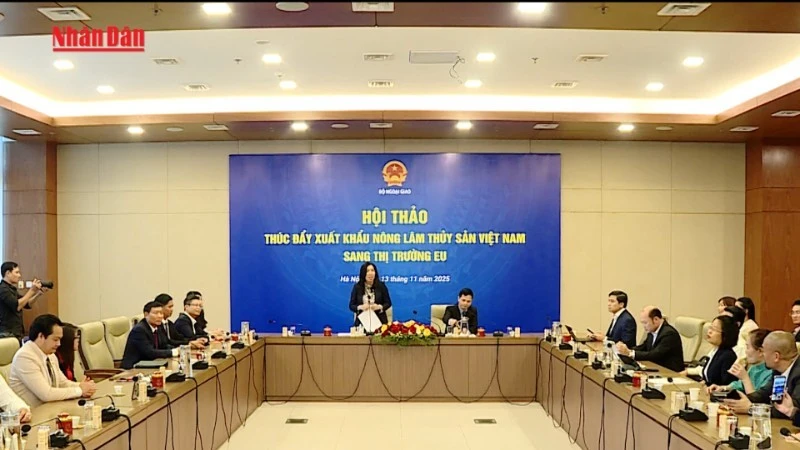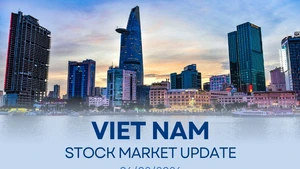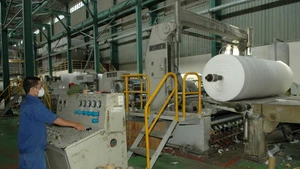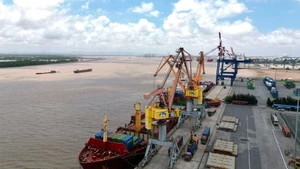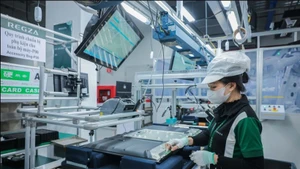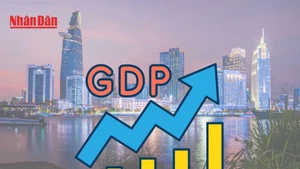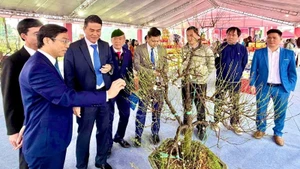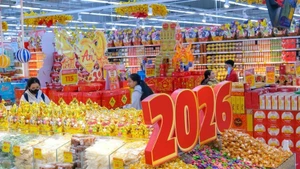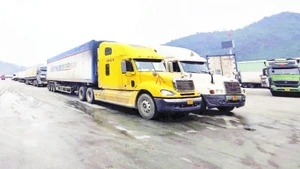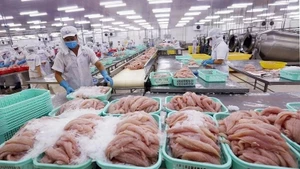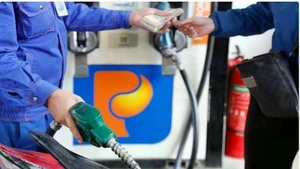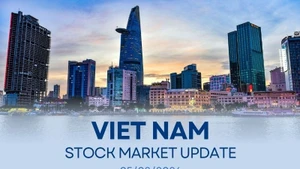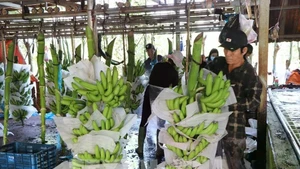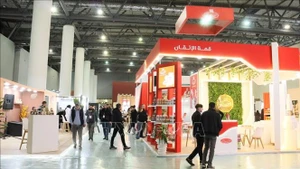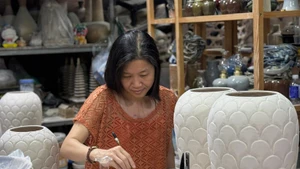On November 13, in Ha Noi, the Ministry of Foreign Affairs held the workshop “Promoting the Export of Vietnamese Agricultural, Forestry and Fishery Products to the EU Market,” chaired by Deputy Minister of Foreign Affairs Le Thi Thu Hang.
The workshop gathered over 200 delegates, attending both in person and online, including leaders from several localities along with representatives of the Ministry of Agriculture and Environment, the Viet Nam Cooperative Alliance, and associations and enterprises in the agricultural, forestry, and fishery sectors.
Participants from the Ministry of Foreign Affairs included the European Department, the Department of Foreign Affairs, the Department of Cultural Diplomacy, the State Committee for Overseas Vietnamese, and Viet Nam’s representative missions in Europe.
Speaking at the workshop, Deputy Minister of Foreign Affairs Le Thi Thu Hang emphasised that the positive political–diplomatic relations and the Viet Nam–EU Free Trade Agreement (EVFTA) form crucial foundations for Viet Nam to tap into the potential of the EU market, especially in the context of current intense trade competition.

The EU is the world’s third-largest market for agricultural, forestry, and fishery products; however, the market share of Vietnamese goods in this sector remains modest, accounting for only about 3% of total EU imports, despite Viet Nam being among the world’s leading exporters of coffee, cashew nuts, pepper, rice, seafood, and tropical fruits.
The deputy minister requested frank discussions from delegates on solutions to sustainably and steadily increase the export value of agricultural, forestry, and fishery products to the EU, given the EU’s increasing adoption of stringent standards on green production, environmental protection, and the fight against illegal, unreported, and unregulated (IUU) fishing.
The workshop took place in a lively atmosphere with active participation from delegates. Representatives of localities, associations, and enterprises agreed with Deputy Minister Le Thi Thu Hang’s view on the need to shift from raw exports to high-value exports and from quantity to quality and sustainability, in line with EU standards. They also stressed the importance of building national brands and developing green and clean products that meet European consumer preferences, with a stronger focus on the cultural values and Vietnamese stories embedded in each product.
Delegates’ remarks indicated that although the EU is a high potential market, Vietnamese enterprises still lack the capacity to fully meet the EU’s technical, environmental, and sustainability standards, and the recognition of Vietnamese brands in the EU market remains limited.
Mai Hai Lam, Chair of the “We love Pho” network and a Vietnamese entrepreneur in Poland, said that Viet Nam should learn from other countries about associating products with national branding and compelling cultural stories. He expressed hope for the support of embassies and businesses in organising pho weeks across Europe.
Vietnamese representative missions evaluated that the European market has high and stable purchasing power and a preference for organic products — an advantage for Viet Nam. However, Viet Nam faces increasing competition from countries with similar products and needs to innovate its marketing and trade promotion methods.
Nguyen Van Thao, Ambassador and Head of the Vietnamese Mission to Belgium–EU, noted that the EU’s high standards are both a challenge and an opportunity for Vietnamese agricultural, forestry, and fishery products to meet international requirements.
Deputy Minister of Foreign Affairs Le Thi Thu Hang affirmed that, under the principle of “putting people and enterprises at the centre,” the Ministry of Foreign Affairs will continue to accompany localities, associations, and enterprises in accessing the EU market more effectively. The ministry will also continue working with EU authorities to address obstacles and maximise the opportunities offered by the EVFTA.
The deputy minister instructed Vietnamese representative missions to proactively support enterprises in accessing timely and comprehensive information on EU regulations and market demands; to further strengthen product promotion activities through creative forms with stronger collaboration among European-based missions; to optimise resources and distribution networks of overseas Vietnamese communities; and to promote technical cooperation and green transition efforts to help Viet Nam’s agricultural, forestry, and fishery sectors meet green and sustainable standards.
Deputy Minister Le Thi Thu Hang expressed her hope that localities and enterprises will proactively coordinate with the Ministry of Foreign Affairs and intensify efforts to build Viet Nam’s national brand, linking each product with stories about the country and its people in the journey to bring Vietnamese agricultural products to the world.
